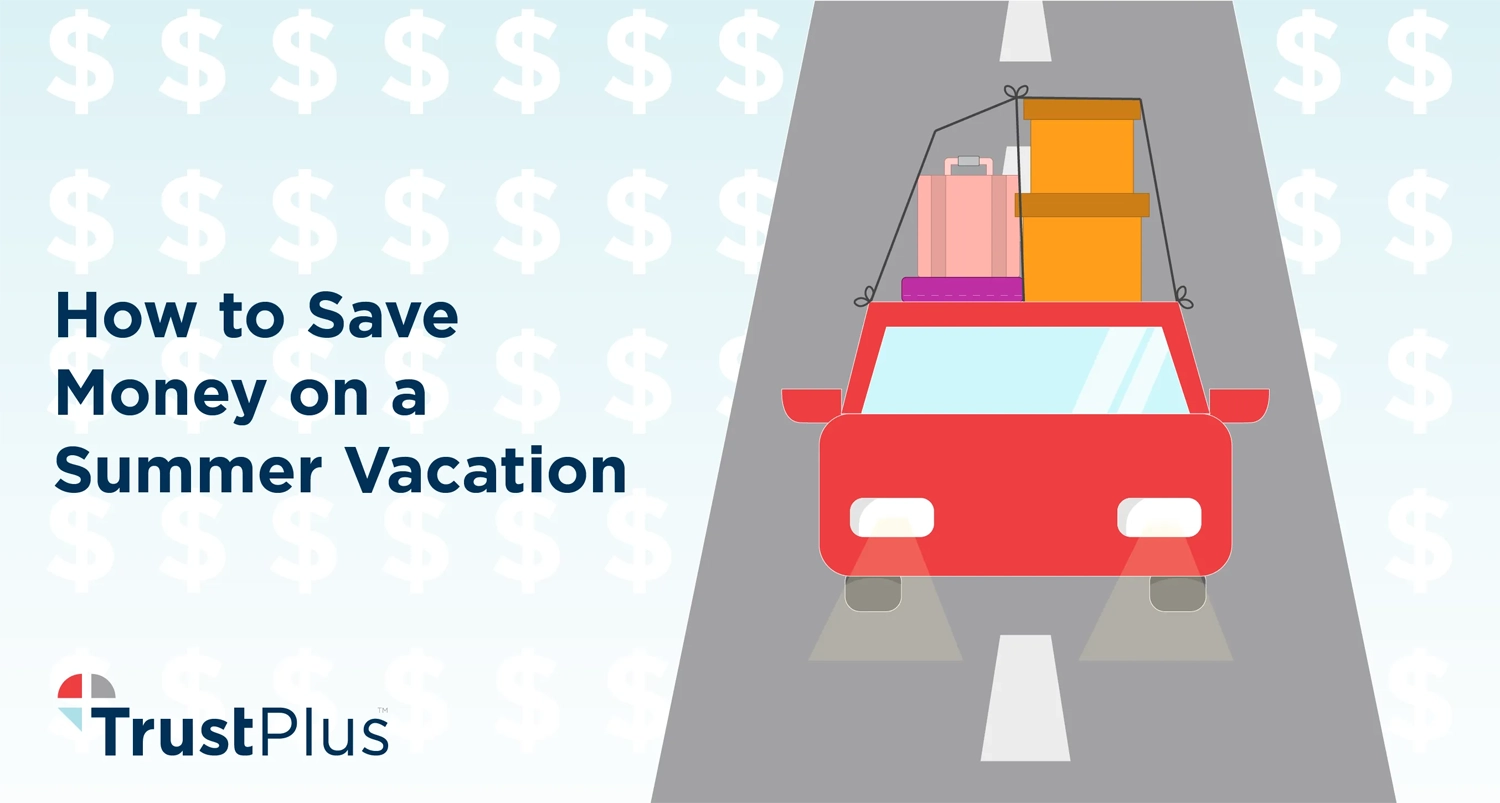Savvy employers understand that millions of workers will turn to high-cost debt to fuel summer vacations, and that reducing employee financial stress is good for your employees, organizational impact, and bottom line. We share five tips for your workers on how to ease stress and save money on a vacation this summer, informed by our TrustPlus personal financial coaches.

Savvy employers understand that reducing employee financial stress is good for your employees, organizational impact, and bottom line.
You understand that summer travel and vacations will strain the budgets of your workers.
And that you can help drive engagement, retention, productivity and profits by reminding employees of the financial wellness benefits that you offer and sharing timely resources, like our tips for workers on how to save money on vacation this summer.
By doing so, you demonstrate that you care about their financial health and offer support on their paths to financial security.
They’ll need it, as we head into the heat of the summer travel season.
Employee financial stress rises with summer travel, vacation debts
Employee financial stress will rise as summer travel and vacations and associated debts ramp up:
45% of U.S. adults plan to take a summer trip requiring a flight or hotel stay.
They expect to spend an average $3,594, per NerdWallet.
Of these travelers, 83% will pay for part of their vacation costs with a credit card.
More troubling, 20% won’t pay off the balance in full within the first billing statement.
Meanwhile AAA expects 71 million people to travel just this week for the July 4th holiday.
In other words, millions of workers will turn to high-cost debt to fuel their fun in the sun (or workations?) this summer.
When they do, the negative consequences could ripple throughout your organization: 72% of respondents to Forbes Advisor say they’re somewhat or very likely to go further into debt when they’re feeling stressed. This leads to more employee stress and to more negative impacts on your organization. It’s a vicious cycle.
What should employers do? Buy TrustPlus personal financial coaching for your employees! Kidding, sort of.
If a holistic financial wellness benefit solution like TrustPlus is off the table at the moment, then simply sharing relevant information demonstrates that you care (Workers who feel like you care do great things for your organization).
Without further ado, here are five tips for workers on how to save money on summer travels and vacations.
How to save money on summer vacation and travel
1. Set a Budget and Stick to It
- Before you embark on your summer getaway, establish a clear budget outlining what you can afford to spend on accommodations, transportation, food, and activities.
- Strategic spending in direct flights or centrally located accommodations can often save you time and money when you factor in all logistical costs.
2. Seek Local Insights
- Connect with locals or other seasoned travelers for insider tips on affordable attractions and dining options.
- There’s typically no shortage of online resources when you enter the name of your destination and some combination of “local travel tips,” “locals guide to,” or “insider travel tips.”
- Local recommendations often lead to hidden gems off the beaten path, providing authentic experiences that are less crowded and more budget-friendly than tourist hotspots.
- Engaging with locals not only enriches your travel experience but also offers opportunities for cost-saving activities, such as attending free community events or exploring lesser-known attractions.
- This approach allows you to discover the soul of a destination while keeping expenses in check.
3. Extend the Joy of Travel
- Extend the value of your vacation budget by mentally preparing for your trip in advance and savoring memories afterward.
- Familiarize yourself in the culture and history of your destination through books, films, documentaries, local media outlets, etc.
- By educating yourself about your destination beforehand, you can appreciate its significance more deeply during your visit, maximizing the emotional and intellectual benefits of travel without overspending.
- A 2014 Cornell University study suggests the anticipation of your trip can increase your happiness significantly, more than the anticipation of buying stuff.
- Further, research published by the University of Surrey finds that people are at their happiest when they have a vacation planned.
- So always be vacation planning?!
4. Do Your Own Research on Food Options
- Food and beverage expenses can quickly escalate while traveling, especially in tourist-heavy areas.
- To minimize expenses, research local dining options independently rather than relying on your host’s suggestions, which often come with inflated prices, especially if your host is a hotel.
- You can also explore online ahead of time where locals buy groceries and where you could access facilities such as local community kitchens. Feeding America offers a useful tool for finding local food pantries, for folks on razor-thin budgets.
5. Leverage Credit Card Rewards and Discounts
- Make the most of your credit card perks to secure discounts on travel expenses. These perks can significantly enhance your travel experience without inflating your budget, provided you make informed choices without overspending to earn rewards which can ultimately lead you into high-cost debt.
Schedule a time with TrustPlus to discuss strengthening your financial wellness benefits and reducing employee financial stress.
